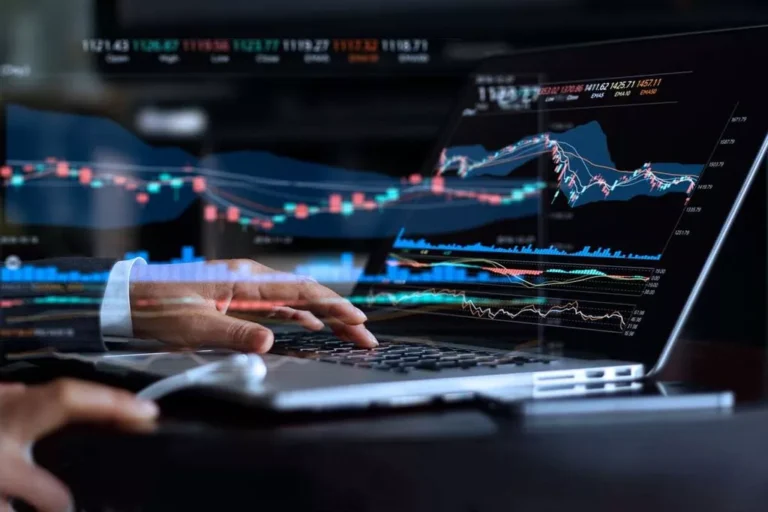Content
This can lead to significant changes in prices of underlying assets in the financial markets. ECN trading Stablecoin ensures that all participants have access to the same pricing information. This creates a more level playing field, as traders can see the best available bids and offers in real-time. The transparency of the system reduces the risk of price manipulation and ensures fairer trading conditions. ECN trading offers some of the fastest execution times available in the market.

What Is an Institutional Forex Trader?
These platforms have a big impact on markets like Forex and fixed-income. As https://www.xcritical.com/ technology and investor needs change, these platforms must keep up. Scallop’s performance is closely tied to broader market trends and investor sentiment. This dependence on external factors can make its price movements unpredictable and challenging to forecast accurately. The cryptocurrency market’s liquidity remains heavily concentrated in mainstream assets, particularly Bitcoin. This concentration could limit the flow of funds into altcoins like Scallop, potentially affecting its liquidity and price stability.
Types of institutional investors
Gone are the days of handwritten orders and human-powered trading floors. Institutions today rely heavily on advanced technology and algorithmic trading to execute their strategies quickly and precisely. These sophisticated algorithms analyze market data in real time, identify optimal entry and exit points, and automate trade execution, ensuring efficiency and minimizing human error. Due to their large capital, institutions exert a institutional trading significant influence on the markets. They can diversify their investments and access better prices, giving them an advantage over retail traders. Moreover, their actions can directly influence the price movement of assets.

Susceptibility to Market Trends
Large orders may be traded over several days to minimize market impact and reduce the risk of price slippage. Algorithmic trading and dark pools are also used to execute trades efficiently and discreetly. Institutional trading is when big companies buy and sell financial assets. They have teams of analysts and traders who work together to make smart trades.
Access to Institutional Liquidity
If you are a beginner trader, you can start as a financial analyst, junior trader, or quant programmer. Valuations of internet companies have zoomed in the last few years giving their investors mind-boggling returns. A classic example is the home-grown MakeMyTrip, which was listed in Nasdaq a couple of years ago. As of January 2021, there were reportedly more than 6,000 different cryptocurrencies on the market according to Bloomberg. While the likes of Bitcoin and Ethereum have become incredibly popular among financial backers and investors in recent years, the vast majority have little to no trading volume or following.
Institutional traders have access to more resources, sophisticated tools, and a higher level of expertise compared to retail traders. Institutional trading is the main driver of financial markets around the world. Mostly done by professional traders who work for large institutions, institutional trading is the act of buying and selling securities on behalf of large hedge funds and financial institutions to make profits. Think of them as investment powerhouses like banks and pension funds.
These include real-time market data, risk management tools, and sophisticated portfolio optimization algorithms. Commodity trading platforms are specifically developed for institutional investors involved in trading physical and financial commodities such as oil, gold, agricultural products, and metals. These platforms offer advanced features for managing commodity futures, options, and swaps contracts. They also provide real-time market data, risk management tools, and analytics for effective decision-making in the commodity markets. These platforms integrate a wide range of data sources, execute trades across multiple markets, and provide tools for risk management and compliance, making them essential for professional trading operations. As the financial world has become increasingly complex, the role of institutional trading platforms has become indispensable.
- To open an institutional account, you must typically complete an application, establish a username and password and submit documents.
- Instead, the modern financial landscape is dominated by a new breed of trading mechanisms – institutional trading platforms.
- Institutional traders vs retail investors have different advantages and disadvantages, but both play important roles in the market.
- Despite challenges such as high costs and regulatory compliance, institutional trading platforms will remain a critical component of the financial industry for years to come.
- Recent reports suggest that institutional trading accounts for over 90% of daily trading volume in the US stock market.
- Institutional trading is practised by a legal entity that accumulates funds from several different investors to invest in different financial instruments such as stocks, bonds, real estate etc.
The complexity of these platforms can also be a barrier to entry for smaller institutions. Charles River Development provides a comprehensive front-office platform for investment managers, asset managers, and institutional traders. It combines order management, trading, and compliance functionalities into a single integrated solution, enabling users to streamline their trading processes.
The rules say the company and its leaders can’t be on any bad lists. These rules help keep the institutional trading platform trustworthy. Most other trading platforms automatically convert currency when you trade instruments outside your base currency but IBKR lets you do it manually on a per-trade or ad hoc basis. While ECN platforms offer tight spreads and quick execution, there can still be instances of slippage during periods of extreme volatility. If liquidity is low or if the market is moving too quickly, orders may not be executed at the exact price requested. However, this is generally less of an issue than with market makers, who may intentionally widen spreads during high volatility.
Features such as smart order routing, low-latency execution, and advanced algorithms reduce market impact and slippage, ensuring that trades are executed at the most favorable prices. TradeStation is another well-known institutional trading platform that supports equities, futures, and options trading. It provides advanced charting and analytical tools, automated strategy execution, and access to multiple liquidity venues. TradeStation is known for its customizable features, making it popular among sophisticated traders. Bloomberg Terminal is one of the most widely used institutional trading platforms. It offers an all-in-one solution for real-time market data, news, financial analysis, and trading execution.
While established brokers always discuss their fees and commission before beginning the process, you must take the initiative if they don’t. Keep it professional and discuss everything before you allow them to handle your trading account. CFD trading may not be suitable for everyone and can result in losses that exceed your deposits, so please consider our Risk Disclosure Notice and ensure that you fully understand the risks involved.
The greater access to information with institutional trading can also create issues with processing all the available information. Institutions still have numerous advantages, such as access to more securities (IPOs, futures, swaps), the ability to negotiate trading fees, and the guarantee of best price and execution. They will keep getting better with new tech and meet the needs of big investors. They will help big investors deal with the global economy more efficiently and confidently. They check if the company has enough money and hasn’t had financial problems before.
The world’s largest 300 pension funds represented 43.0% of the global pension assets in 2023, according to the Thinking Ahead Institute’s annual Global Pension Assets Study. All these reasons are why this book is a must-read for any aspiring institutional trader since it will give a lot of informative insight into the success of Jim Simons in following the strategies. He is one of the bests amongst legendary investors, including Warren Buffett, George Soros and Ray Dalio.
The impact of institutional trading on the forex market can be significant. This involves using computer programs to analyze market data and execute trades automatically. Successful traders have adapted by investing in technology themselves or by focusing on longer-term strategies that are less affected by short-term fluctuations. High-frequency trading algorithms can execute trades faster than human traders ever could, which has led to increased competition and lower profits for some institutions. Successful traders also employ risk management techniques such as diversification and hedging to minimize losses. Advances in technology have made it easier for institutions to access information about the market and execute trades quickly and efficiently.